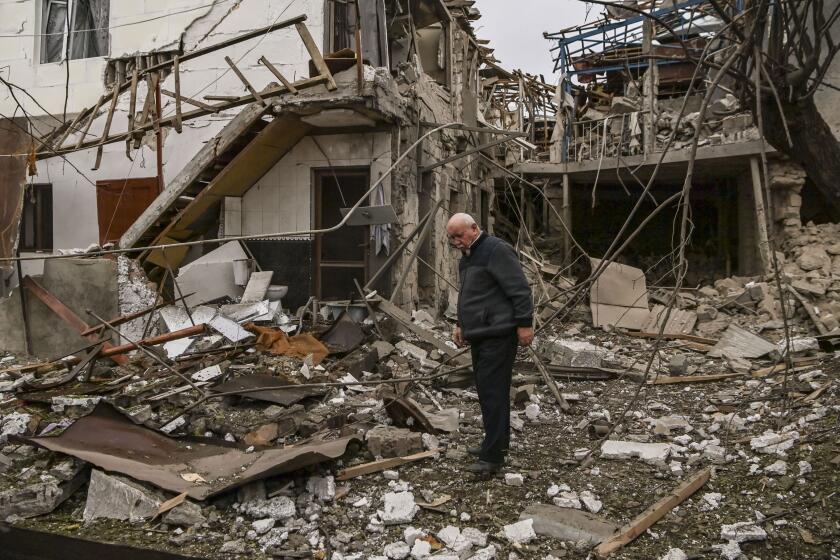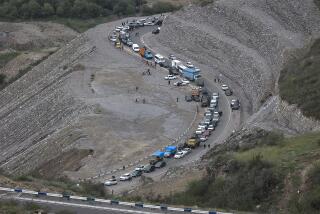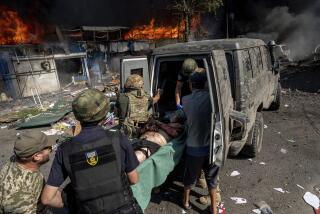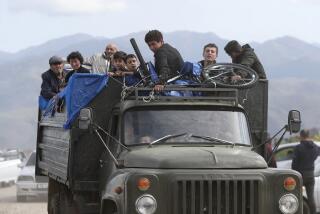Op-Ed: The world should not ignore the deadly attacks in the South Caucasus
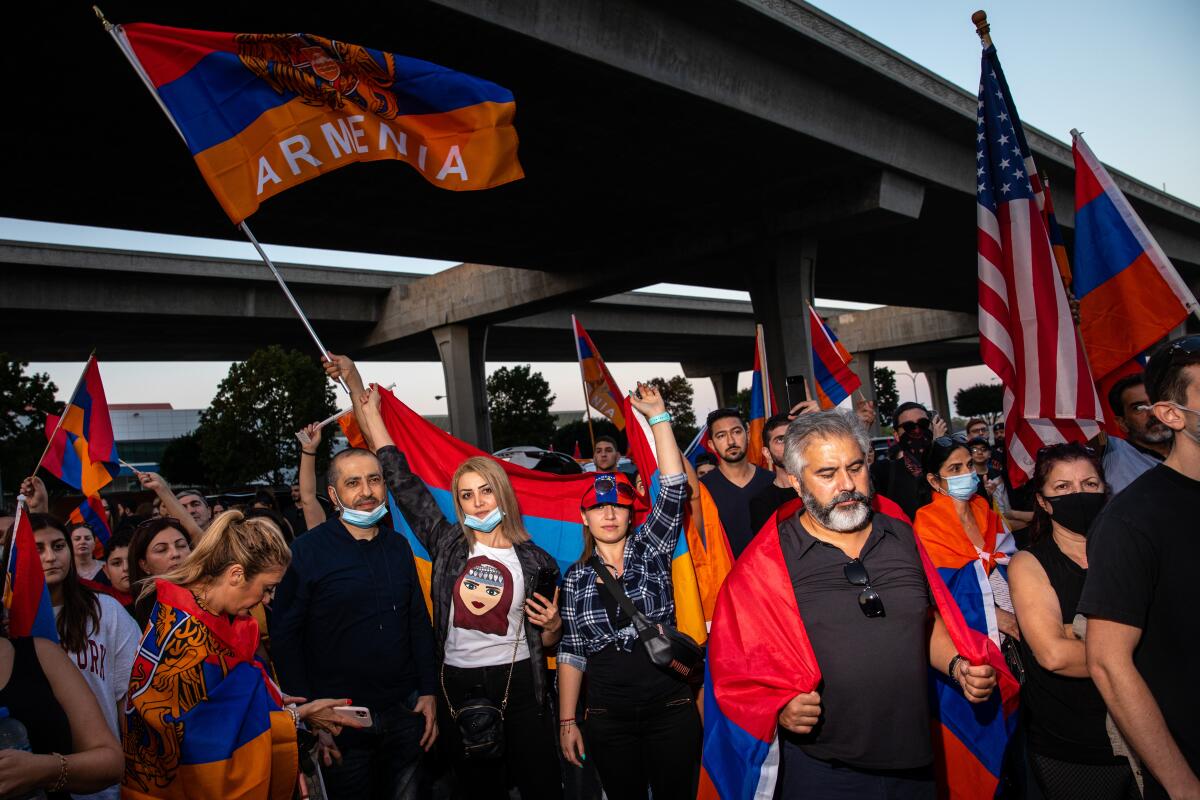
For nearly two weeks, civilians across Artsakh — an Armenian-populated region in the South Caucasus — have endured a relentless and deadly barrage of Azerbaijani rocket, artillery and drone attacks. Most recently, a cathedral in Artsakh, known internationally as Nagorno-Karabakh, has been twice attacked, injuring journalists who were inspecting the damage.
What is so different and dangerous about this new attack is Turkey’s open and aggressive backing of it, emboldening Azerbaijan’s leaders and arming its military. Armenians believe this Turkish support combined with an international community distracted by the coronavirus and U.S. elections spurred Azerbaijan to launch attacks now. The conflict is threatening to boil into a regional war — if not a much larger one — if the United States and other world powers fail to intervene.
Slightly larger than Rhode Island, Artsakh has been populated by Armenians for thousands of years. An early cradle of Christianity and home to holy sites from the 1st century, Artsakh today is a modern democracy and de facto state with its own president, legislature and self-defense force. It has been vying for self-determination since the fall of the Soviet Union in 1991.
We Armenians view this current attack as an attempt to continue the Armenian genocide of 1915, begun by the rulers of the Ottoman Empire who decided Armenians had to be eliminated, because we disrupted the empire’s quest for ethnic contiguity. As a result, the Armenian population in the region was eradicated, with 1.5 million falling victim to genocide.
Like other groups who have experienced the horrors of genocide, Armenia and Artsakh are standing firm, committed to the idea of “never again.” Turkey’s long-ruling president, Recep Tayyip Erdogan, has made no secret of his vision for a role for Turkey matching the historic prominence of the Ottoman Empire, which was centered in what became Turkey. Just last week, Erdogan even claimed “Jerusalem is ours.” In that quest for expansion, he is said to view the South Caucasus as his next prize and Azerbaijan as his closest ally.
Turkey is providing Azerbaijan with active diplomatic and military support, including hardware, training and instructors to attack Armenian civilians in Artsakh’s capital city of Stepanakert. Turkey’s F-16 jets have assaulted civilian and military positions in Artsakh and Armenia. The governments of France and Russia have accused Turkey of recruiting fighters and of paying and transporting thousands of jihadist mercenaries from Syria to Azerbaijan.
It appears that Turkey is trying to provoke a full-scale war in the South Caucasus. For Erdogan, who has already managed to insert himself into the Syrian and Libyan civil wars, meddle in Lebanon and the Aegean Sea, and amass an army of Islamist militant recruits to fight its proxy wars, this conflict is the latest test of what inexcusable actions Turkey’s Western allies will tolerate.
Armenia and Azerbaijan need to return to the negotiating table, so that the deadly conflict in Nagorno-Karabakh does not widen into a regional war.
In line with this, Turkey and Azerbaijan have declared their partnership as “one nation, two states.” Except Armenia and Artsakh stand in the way of this “vision.” Turkey has pledged full support for Azerbaijan’s use of force, which has drawn condemnation and pushback from NATO allies.
Meanwhile, the 1.5-million-strong Armenian American community — nearly 1 million of them in the Los Angeles area — has been galvanized by the conflict, demonstrating to call attention to the violence. This includes demonstrations that have been held across Southern California in recent days. Many of the protesters are descendants of survivors of the Armenian genocide. In spirit, they joined Armenians in their homeland who are defending their right to live in a free, peaceful, prosperous and secure homeland.
The world must not stand by, nor look away. As a member of the North Atlantic Treaty Organization, Turkey is obligated to behave as a responsible international actor, certainly not one that promotes ethnic hatred and regional wars. Membership is not a pass to warmongering.
The United States could intervene by pressuring Turkey to stay out of the Artsakh conflict and tame Turkey’s ambitions for any broader role in the South Caucasus. This could also include pushing Turkey to lift its diplomatic and economic blockade on Armenia, confront its genocidal past and repair its relationship with Armenia.
In addition, the U.S. is a co-chair of the OSCE Minsk Group, created to encourage a negotiated resolution to the Nagorno-Karabakh conflict. As such, the United States should urge Azerbaijan to stand down and resume negotiations to peacefully resolve the conflict, based on a mutually acceptable compromise. Until then, all American security and military assistance — particularly the sale of weapons and sensitive technologies to Azerbaijan — must be suspended.
There is no workable alternative to diplomacy in Artsakh or any other problem in the South Caucasus. The United States should lead the international community in checking Azerbaijani aggression and restraining Turkey’s ambitions.
Varuzhan Nersesyan is the Armenian ambassador to the United States.
More to Read
A cure for the common opinion
Get thought-provoking perspectives with our weekly newsletter.
You may occasionally receive promotional content from the Los Angeles Times.
